Recipient Videos
Full Bios
Dr. Norman Guilloud ‘60
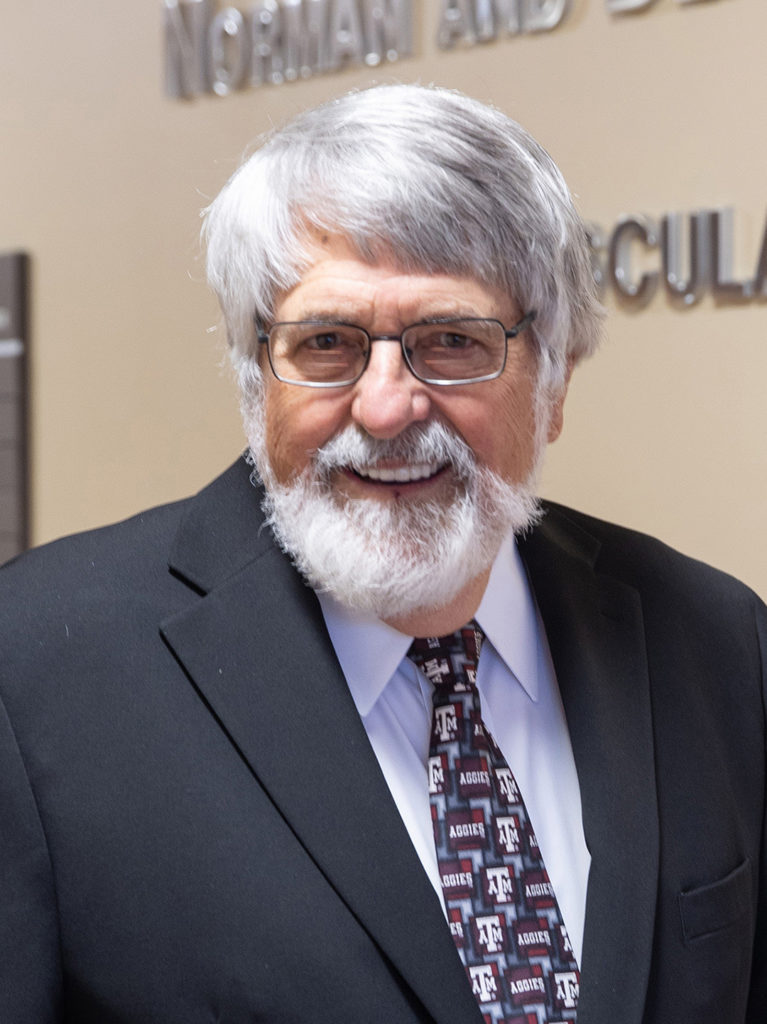
Dr. Norman Guilloud was raised on a farm near Pottsboro, Texas. Although he was active in 4-H and FFA, he credits Dr. W. N. Porter for inspiring him to be a veterinarian at the age of 12 when Porter successfully removed a potato from the larynx of one of his hogs. At that point, he made the decision to become a veterinarian.
Shortly after graduating in 1960 with a Doctor of Veterinary Medicine (DVM) degree from Texas A&M University, Guilloud began climbing the veterinary career ladder.
His first position was in private practice in Dallas. In 1962, he was drafted into the U.S. Army Veterinary Corps and served as a captain at the Walter Reed Army Institute for Research in Washington, D.C.
After his discharge in 1964, Guilloud was offered the opportunity to be the first veterinarian at the Yerkes Regional Primate Research Center of Emory University because of his groundbreaking research and skills in laboratory animal medicine. While there, he diagnosed and treated the first cases of polio in nonhuman primates and recommended the use of oral polio vaccine at zoos and in the wild, a landmark moment in primate medicine that continues today.
In 1972, Guilloud became the first attending veterinarian at Princeton University, with responsibility for the welfare of all animals within the institution. He consulted there until 1996 while working at E.R. Squibb Pharmaceutical.
Throughout his career, Guilloud also has consulted with many high-profile pharmaceutical companies to improve the care of primates and other animal species. While supporting pioneering research, he has helped advance xenotransplantation, or the transplanting of nonhuman tissues or organs into human recipients.
In addition to his veterinary medical expertise, Guilloud has accumulated more than 60 years of management experience as an attending veterinarian.
Like many Aggies, he also has given back to his community. A gift to his local hospital was instrumental in the construction of the Norman and Denise Guilloud Cardiovascular Center, which now offers patient procedures such as angioplasty that previously were not performed at their hospital.
Throughout his career, peers have said Guilloud is unrivaled as an authority in the animal care field. His service over the years makes him an invaluable resource, allowing many generations of scientists the ability to learn from his unique perspective, conveyed, as always, in Guilloud’s personable and welcoming style.
Guilloud has never hesitated to share information with others from all levels of education on the topic of animal care. He has presented numerous training sessions at professional meetings to further the understanding of procedures used in laboratory animal medicine, and his approach is the same whether he is addressing a high-level academic group or trying to inspire a group of pre-veterinary students.
“I have seen him show compassion, gentle caring, heartbreak, and a genuine concern for all animals,” one nominator said. “He has been a great mentor, attending veterinarian, and a guiding force during my career.”
Guilloud and his wife Denise, live on a farm near Stockton, New Jersey, where he continues, at age 86, to share knowledge and experience with others in the field of laboratory animal medicine.
Dr. Angela Pelzel-McCluskey BIMS ‘97, DVM ‘01
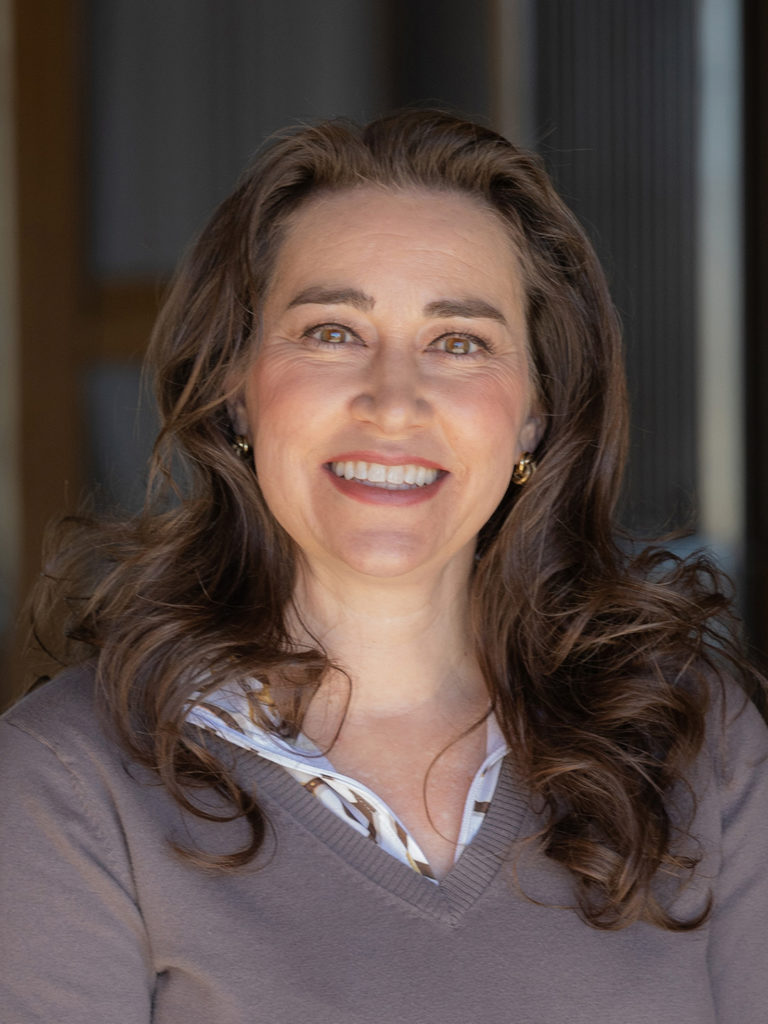
Throughout a career that truly exemplifies Texas A&M’s core value of selfless service, Dr. Angela Pelzel-McCluskey’s innovative thinking and willingness to collaborate have helped protect the United States’s equine industry in a number of ways.
Pelzel-McCluskey earned bachelor’s degrees from Texas A&M University in biomedical sciences, graduating magna cum laude in 1997, and veterinary science, graduating cum laude in 1998. She earned her Doctor of Veterinary Medicine (DVM) degree in 2001 and also holds a Master of Science degree in veterinary immunology and infectious disease from Washington State University.
Since 2006, Pelzel-McCluskey has worked for the U.S. Department of Agriculture’s (USDA) Animal and Plant Health Inspection Service (APHIS) in Fort Collins, Colorado, most recently as the national equine epidemiologist overseeing the response to equine infectious disease outbreaks nationwide. She has been the lead epidemiologist for more than 30 major disease outbreak responses to date.
Pelzel-McCluskey also has worked internationally, training other animal health officials in epidemiology and outbreak response in Central America, western Africa, and the Middle East. She has authored more than 40 peer-reviewed publications and textbook chapters on regulatory medicine and infectious disease topics.
Nomination letters from across the country detail the widespread impact she’s had. One describes her as “the go-to expert for regulations and surveillance for endemic and transboundary equine infectious diseases in the United States.”
Another described how her guidance helped save horses when equine piroplasmosis (a blood-borne protozoal infection in horses) was first detected in the U.S. At a time when euthanasia or export from the U.S. were the only options for infected horses, Pelzel-McCluskey’s efforts led to a successful treatment protocol.
“This was a challenging leadership position, as there were many opinions on how to approach the detection of equine piroplasmosis in U.S. horses,” one nominator said. “She worked diligently to ensure that all voices were heard and that a science-based approach was used to come up with the final guidance documents.”
One nominator described her out-the-box thinking in assessing and addressing disease risk to the national equine population—using a behaviorist to develop targeted messaging to reach high-risk populations as well as social media to identify and trace potential exposures—as “highly innovative.”
As a result of those efforts, several organizations have increased their efforts in collaboratively addressing infectious disease issues in unsanctioned racehorses.
“Her long-term and ongoing dedication to this issue is advancing regulatory equine medicine and ensuring the future health and welfare of the entire U.S. equine population,” another nominator said.
In 2016, she received the Federal Partnership Award from the U.S. Animal Health Association for her expertise and collaboration with states and industry on equine health issues.
“A champion for the horse and advocate for the profession in her own position at the USDA, she serves as a leader in the industry, fighting for programs, resources, and support for the horse and equine veterinary profession,” one nominator said. “The equine population remains healthy, and the horse industry remains vibrant and informed due to the efforts of Dr. Pelzel-McCluskey.”
Pelzel-McCluskey lives on a small ranch in Livermore, Colorado, with her horses and her husband, Brian, who is also a veterinary epidemiologist.
Dr. Laura E. Robinson DVM ‘90
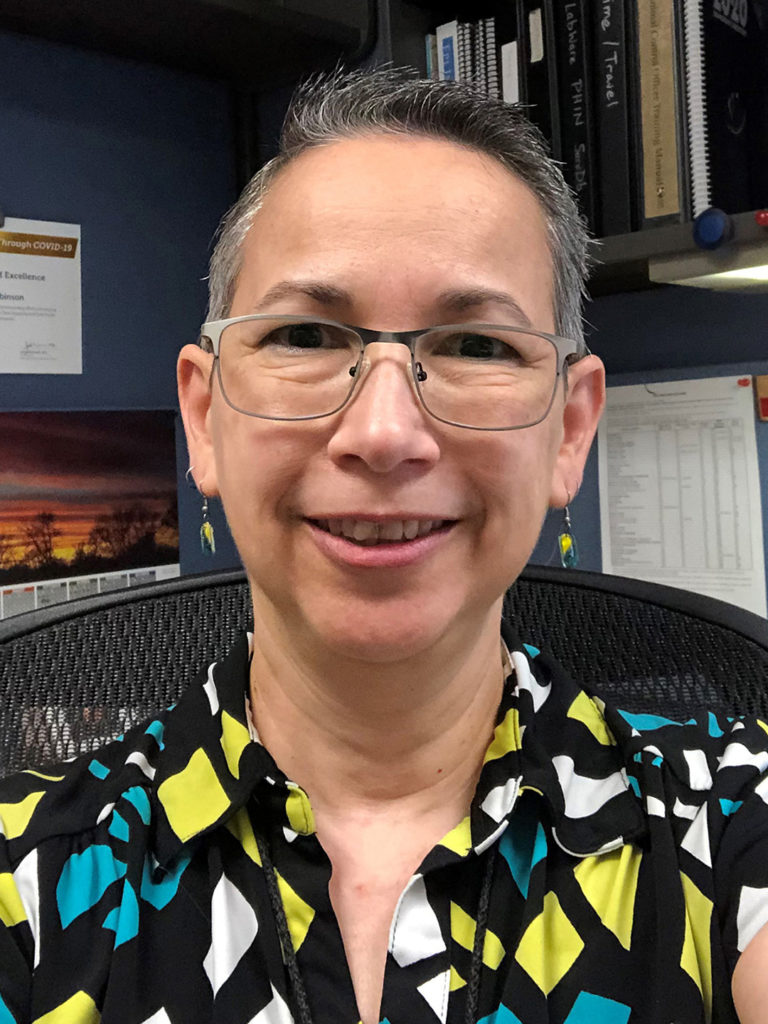
Very few Aggies have incorporated the Texas A&M College of Veterinary Medicine & Biomedical Sciences’ (VMBS) mission of “serving every Texan every day” into their careers as extensively as Dr. Laura Robinson.
In addition to her 1990 Doctor of Veterinary Medicine (DVM) degree, Robinson also earned a bachelor’s degree in veterinary science in 1988 and a master’s degree in epidemiology in 1991 from Texas A&M University.
After graduation, she began serving Americans and other world citizens as an epidemic intelligence service officer with the Centers for Disease Control and Prevention (CDC) in Atlanta. There, she conducted field operations for Q Fever—a zoonotic disease caused by the bacteria Coxiella burnetii—in Wyoming and for canine rabies vaccination coverage in the Philippines and South Texas.
She moved back to Texas in 1994 to work in the Zoonosis Control Program, which she would eventually oversee, in the Texas Department of State Health Services.
Her CDC experience helped her become a leader in the implementation of the Texas’ Oral Rabies Vaccination Program (ORVP), with which she was instrumental in the response to two epidemics of rabies in animals along the Texas-Mexico border in 1995 that resulted in two human deaths and thousands of post-exposure treatments. That response, which included 18 South Texas counties, was the state’s first ORVP and was, at the time, the largest single vaccine bait drop in the world.
“Dr. Laura Robinson has saved Texans’ lives,” one nominator said. “Yes, that is the goal of any public health professional, but Dr. Robinson took it to another level.
“She was the zoonosis control program veterinarian for the Department of State Health Services during one of the greatest zoonotic disease threats to the citizens of Texas, the introduction of what would be named the domestic dog/coyote variant of rabies,” the nominator said. “Through her guidance and work ethic, that variant was pushed out of Texas.”
From 2017-2021, she served as the assistant state public health veterinarian, overseeing the ORVP and supervising the zoonosis control branch epidemiology team. She retired from the position last August.
Robinson’s medical expertise has led her to become a leader not only in her field but also as a mentor and someone colleagues know they can count on.
“There is never a time when Dr. Robinson is not willing to lend her extensive expertise and insightful input into any discussion on a far-reaching array of issues and topics,” another nominator said. “Her impressive knowledge is renowned by all of her peers statewide, and she is always sought for her ever-ready resources. She is also one of the most dependable people one could ever hope to meet.”
Col. Michelle Thompson, DVM ‘02
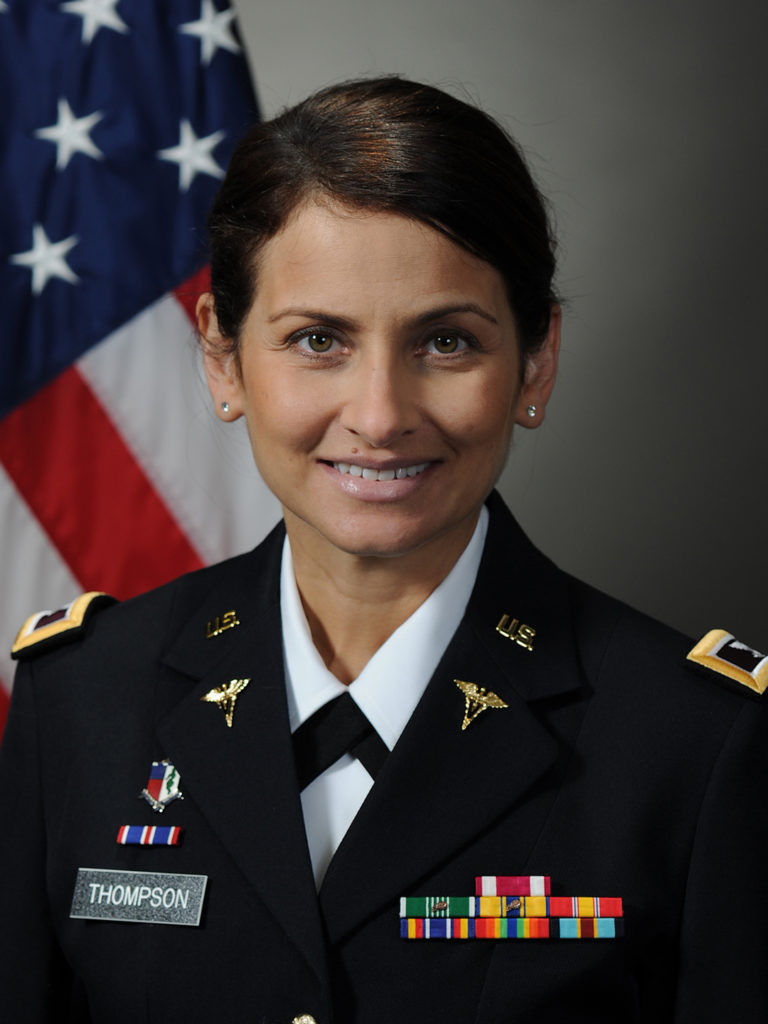
By dedicating her career to service and research in the United States military, Col. Michelle Thompson is using her Doctor of Veterinary Medicine (DVM) degree to benefit both people and animals.
Thompson earned a bachelor’s degree in marine biology from Texas A&M University and her DVM in 2002; during that time, she developed a strong interest in pathology.
“Michelle stood out because of her intelligence, organizational skills, and ability to interact with her peers in a positive and productive manner,” a former professor said. “In the 25 years I was on the faculty at Texas A&M, I had the privilege of working with a number of outstanding students, but I cannot think of one who is more worthy of recognition for their post-graduate contributions to our profession and the College of Veterinary Medicine & Biomedical Sciences.”
After graduation, Thompson entered the U.S. Army as a captain, serving in Puerto Rico, with missions in the U.S. & British Virgin Islands; Central America; and Guantanamo Bay, Cuba, before joining the Armed Forces Institute of Pathology in Washington, D.C., as an anatomic pathology resident.
During this time, she served as the chief pathology resident, organizing a weekly international pathology conference in her final year. She also received the C.L. Davis, DVM, Foundation for the Advancement of Veterinary and Comparative Pathology’s Student Scholarship Award in Veterinary Pathology.
In 2008, she became a Diplomate of the American College of Veterinary Pathologists and moved to San Antonio’s Tri-Service Research Laboratory, where she served in several positions, including deputy director of the 711th Human Performance Wing, Airman Systems Directorate, Bioeffects Division, Veterinary Sciences Branch.
“Col. Thompson lives the Army values and expects others to do the same,” another nominator said. “She is a well-disciplined officer who treats all with dignity and respect and ensures an environment of fairness, awareness, and resiliency.”
Thompson was promoted to colonel in 2019 and currently serves as director of the U.S. Department of Defense (DOD) Food Analysis and Diagnostic Laboratory at Fort Sam Houston—the DOD’s premier Global One Health Laboratory, serving customers in more than 47 states and 18 countries.
Her research interests include tactical combat casualty care, wound healing, warfighter performance enhancement, and infectious diseases. She has contributed to eight published articles, one of which was featured on the May 2008 cover of the Journal of Veterinary Pathology. She also co-authored the “Radiation and Other Physical Agents” chapter in Haschek and Rousseaux’s “Handbook of Toxicologic Pathology.”
“She serves as a wonderful role model for any professional who would like to have a successful career and raise a family,” another nominator said. “She is active in her church and school community in San Antonio and is just generally a great person and loyal friend.”
Thompson has received numerous honors during her career, including the Army Meritorious Service Medal, Air Force Meritorious Service Medal, National Defense Service Medal, and Global War on Terrorism Service Medal. She earned the prestigious Army Medical Department’s (AMEDD) “9A” Proficiency Designator, a professional excellence honor bestowed by the Army Surgeon General upon candidates who have attained full professional status and prominence in their field. Thompson is also a member of the AMEDD’s Order of Military Medical Merit.
Her image was used as a model for a bronze statue representing the Army Veterinary Corps’ research and development mission, which debuted in 2016 and is on display at the Fort Sam Houston Army Medical Museum.
She lives in San Antonio with her twin daughters, Ashley and Sofia; her Great Pyrenees, Olaf; and three cats, Mr. Fluffy, Tiggy, and Grumpy Kitty. She credits her mother, Elena Sue Cardwell, as a source of wisdom, strength, and inspiration throughout her life and her father, Jose R. Pacheco, also as a source of wisdom and support over the years.
She and her girls enjoy the great outdoors and travel in their spare time.
Dr. Katrina Breitreiter ’13 (2022 Rising Star Recipient)
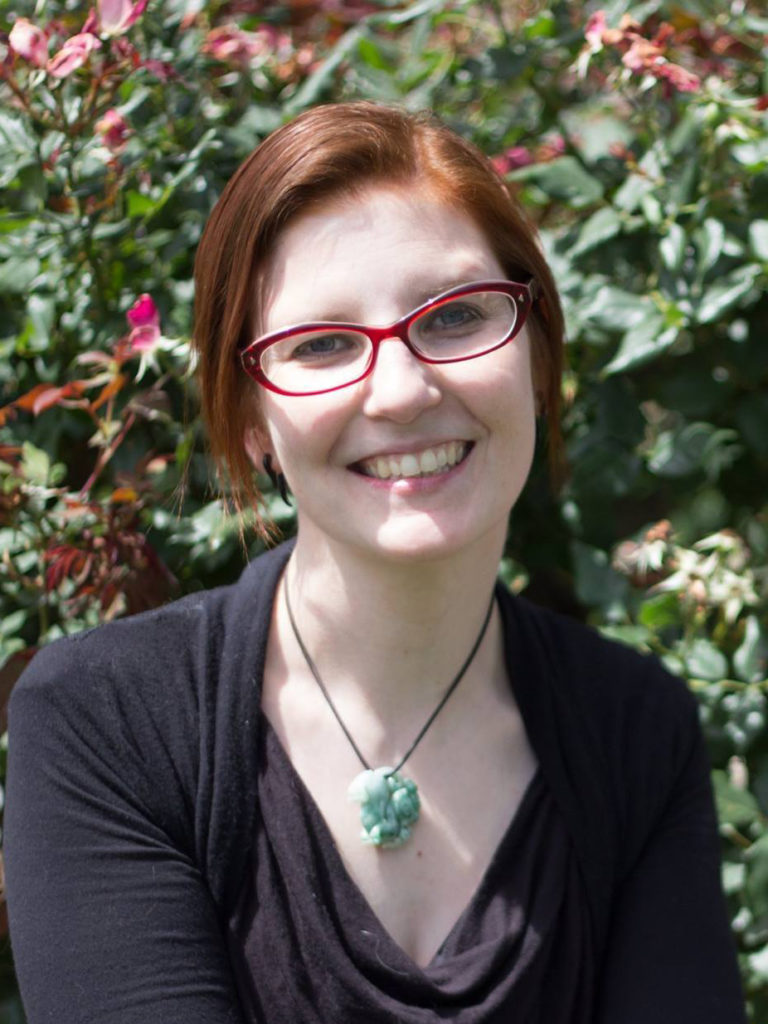
In the nine years since Dr. Katrina Breitreiter earned her Doctor of Veterinary Medicine (DVM) degree, she has established a career devoted to improving the lives of cats—and their people—in the Austin area.
After earning a bachelor’s degree in psychology from the University of Texas at Arlington, Breitreiter discovered a love for veterinary medicine while volunteering at an animal hospital and went on to earn her DVM from Texas A&M University in 2013.
“There are few people in the world who pick a dream and have the drive to actually accomplish that goal. Kat has done this countless times and continues to inspire her friends, colleagues, staff, and clients,” one nominator said. “There is no doubt that she will contribute an immeasurable amount to feline veterinary medicine throughout her career.”
She began her career as a shelter veterinarian at the Austin Humane Society, providing Trap Neuter Return services for the community cats of Austin, and then worked as an associate veterinarian in corporate and small animal general practice.
In 2017, Breitreiter established the South Austin Cat Hospital, a feline-only practice dedicated to reducing cats’ fear and stress during veterinary visits. Since then, the practice has grown to include three other full-time veterinarians and has earned the American Association of Feline Practitioners’ (AAFP) Gold Cat Friendly Practice recognition.
“South Austin Cat Hospital is an exemplary veterinary practice and Dr. Breitreiter has raised the local level of care with her attention to detail, practice of good medicine, and excellent stewardship of a veterinary hospital,” a nominator said. “In four short years, she has grown the hospital tremendously, while keeping her staff, clients, and patients happy.”
Breitreiter became Austin’s first board certified veterinary specialist in feline practice through the American Board of Veterinary Practitioners in 2020. She also earned the title of Cat Friendly Veterinarian through the AAFP in 2020.
Outside of her work, she volunteers on the Williamson County Regional Animal Shelter advisory board and as the Texas director for The Paw Project, a 501(c)(3) non-profit organization seeking to end the practice of feline declawing through education and legislation. As a result of Breitreiter’s advocacy, Travis county passed local legislation banning the declawing of cats in 2021.
“Katrina is one of the most passionate veterinarians I have ever met,” another nominator said. “You can see her excitement every time she talks to an owner about their pet, consults a colleague about a case, or even as she reads the latest edition of an internal medicine textbook. She is absolutely brilliant at taking a complex disease and simplifying it so an owner can understand their pet’s condition.”
Breitreiter has been recognized with the 2014 Banfield Service Award and the Austin Business Journal’s 2015 People on the Move Award. She has published work in both the Journal of Feline Medicine & Surgery and in Veterinary Dermatology.
When Breitreiter isn’t helping cats, she enjoys playing video and board games with her husband, Joseph, practicing yoga, and spending time with her mother. She and her husband share their home in Austin with six feline family members.
